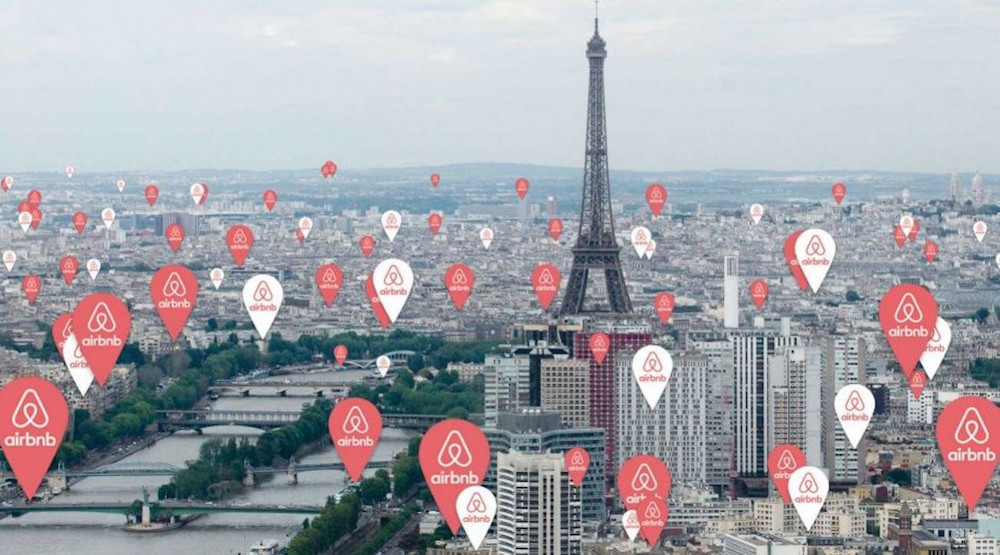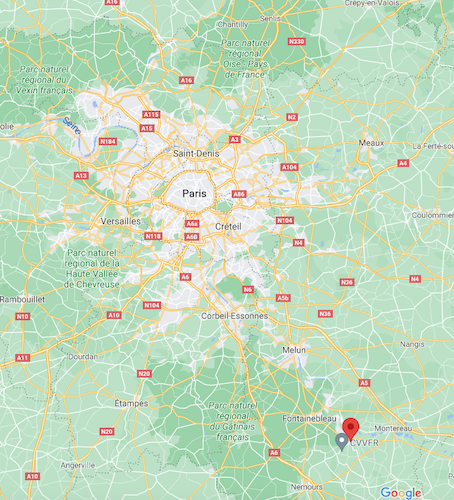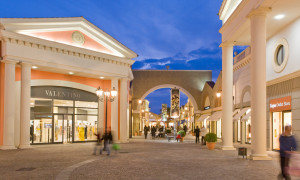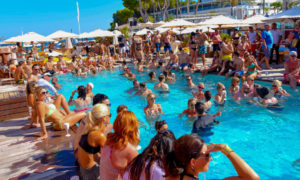(Editor’s note: This post about hosting Airbnb in Paris during the pandemic originally appeared on Medium. It’s reposted here with the permission of the author.)
I barely made it home to the 19th arrondissement of Paris before lockdown in March 2020. At the time I was away in Bulgaria at a conference hosted at Coworking Bansko and had planned to stay on for a few more days of skiing when enough people I trusted told me I should get back to France before they stopped flights. I managed to land back in France the night of lockdown. The next day they stopped regular flights out of Sofia.
I had an Airbnb guest staying in my apartment at the time. I had actually gotten this specific two-bedroom apartment in 2018 in order to host full-time after Paris tightened its regulations on Airbnb some years ago. I’ve been hosting in Paris for five years now, have welcomed almost 1,000 guests from dozens of countries, and hold the helpful “Superhost” designation, which definitely helps land more reservations.
Neither that guest nor I knew what would be ahead of us, not just for Airbnb but for anything.
Soon enough, however, Airbnb made an announcement that it would be refunding 100 percent of all reservations made before 14 March 2020, regardless of the cancellation policy of the hosts.This decision is still a hotly debated issue by hosts and led to an exodus of a significant number of them to other platforms or self-hosting websites. They felt let down by Airbnb.
While a single-listing host like me was significantly impacted (my revenue was down 10,000 euros year-on-year from March 2020–March 2021), I can’t imagine what hosts with multiple properties went through, especially if they were carrying mortgages on any of them.
It’s not my job (or desire) to defend Airbnb’s decision, but they did try to make it right with the hosts later by offering 25 percent of the revenue of the cancelled reservations to those hosts and setting up a Superhost fund. But any Google search will reveal, via forums and articles, that many hosts saw only some of that revenue and almost no one went on the record as having received funds for Superhosts. On the other hand, I think Airbnb handled the situation as well as they could, all things considered, and even managed to IPO this year.
You can’t say they aren’t resilient.
A New Type of Hosting
During regular times, I would rarely see my guests. While sometimes we would share a meal or a long chat or walk together; other times we didn’t see each other at all. Understandably, these were people on possibly once-in-a-lifetime trips to the most visited city in the world. They were gone first thing in the morning and often came back late at night. They wanted to get as much Paris in their life as they could. I couldn’t blame them and was grateful for their significant contribution towards my rent.
But, during lockdown, not only could my guests not leave, neither could I, except for those exciting trips to the supermarket! Obviously the profiles of guests changed completely as well. No longer was I welcoming tourists, but mostly stranded people. These were students whose semesters were cancelled, people on vacation who now had no place to vacation, or in one case, a married couple who tried to move into their apartment but were refused by the current occupant, who had decided to renege on their move-out plans.
I was working in my living room instead of coworking spaces and cafes, but it wasn’t unpleasant, just new. The guests often stayed in their rooms, talking to friends and family or arguing with airlines and embassies. I commiserated when I could, offering tea and a ready ear. After all, I was at home and able to work.
I also had to recognize, and quickly too, that prices had to change dramatically. I still wanted to keep the occupancy rates that I have had all these years, roughly 95–98 percent, so I surmised that 50 percent off regular nightly rates would keep me booked, and I was right. I kept my normal occupancy rates, but at the “new normal” prices.
Summer
Summer provided a bit of a respite. In fact, I prematurely predicted a return to the “old normal” and even decided to quickly take a trip to see family in the US, during a time when PCR tests were not required either to visit the US or to return to France. That meant that Europeans were traveling to France, as well as others who had been locked down and were free to come and go. Prices rose slightly, and things did seem “normal” for a while. Then our second lockdown arrived.
Hygiene Protocols
By this time Airbnb had also introduced “additional cleaning” steps like wiping down all the different surfaces of your home, etc. in order to earn a shiny badge on your listing. I correctly guessed that people who were traveling during this time weren’t really expecting me to treat my own home like a hospital ward. I didn’t opt for the additional measures and stayed fully booked.
That said, the second lockdown meant that prices were depressed further, and were now 40 percent of what they were the previous year. I still was fully booked as workplaces were open and Paris is such a central hub for so many industries in France that many people were coming for internships or trainings. My conversations with guests turned almost entirely French and together we reflected on the gaps in thinking between the government and the people of France.
The End
I honestly enjoyed my year of hosting during COVID-19. I still did a fair amount of travel in 2020, even after March, mostly for business and mostly in Europe. But I spent more continuous time at home in Paris than in all the previous years I’ve lived there. That was nice. I also got to have many interesting conversations with my guests and heard perspectives from all over the political spectrum (and world!). But sharing my space made a lot more sense when I didn’t spend all day with my guests and when their contribution to my rent was significant.
More importantly, Paris was no longer Paris for me. I never knew what an integral part of the city restaurants and cafes were, in part because we just take them for granted. But as of the writing of this article, our restaurants and cafes have been closed for dine-in service since the end of October 2020, and while Paris is still beautiful, it’s missing its soul.
So, instead of sticking around for another year to see how it plays out, I stopped hosting at the end of March 2021 and started packing. Last week I moved to Moret-sur-Loing, a small medieval town just south of Fontainebleau, about 45 minutes from Paris by train.
I never planned to leave Paris, nor to stop hosting on Airbnb, but life changes, and if I’ve learned one thing from the past 12 months, it’s the importance of moving on and living in the now, instead of waiting for things to go back to “the way they were.” Whatever happens next, we are never going back to “the way things were.” Life has changed forever.
And that’s a good thing.

About the author:
Singaporean-born American Stephen Heiner lived in Paris from 2013 to 2021 after living in Asia and the United States for most of his life. While he has an undergraduate degree in literature, he also has an MBA, and he’s very much the man who enjoys studying financial statements as much as he enjoys reading essays by G.K. Chesterton or James Howard Kunstler.
He visits his family in the U.S. and Singapore each year, but in the meantime enjoys his dream city, which he finally had a chance to move to after selling a company he built over a number of years.
You can find him on twitter and instagram @stephenheiner.
You can also follow his immigration journey on www.theamericaninparis.com, where Stephen also offers consulting to those interested in relocating to, and/or making a life in, France.
See more of Stephen’s Dispatches posts here.






























